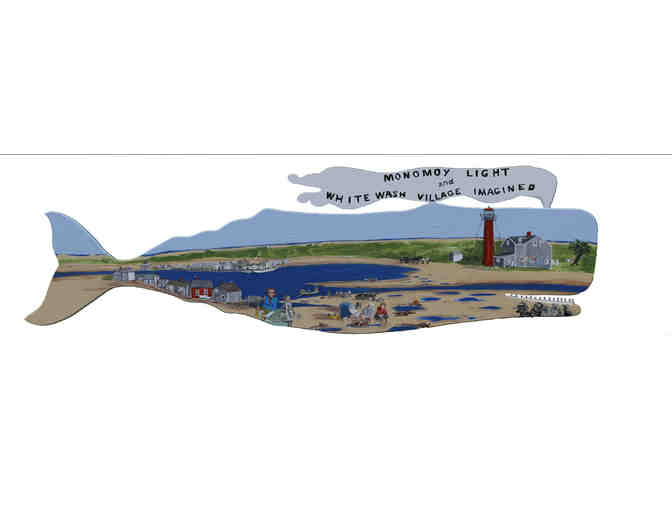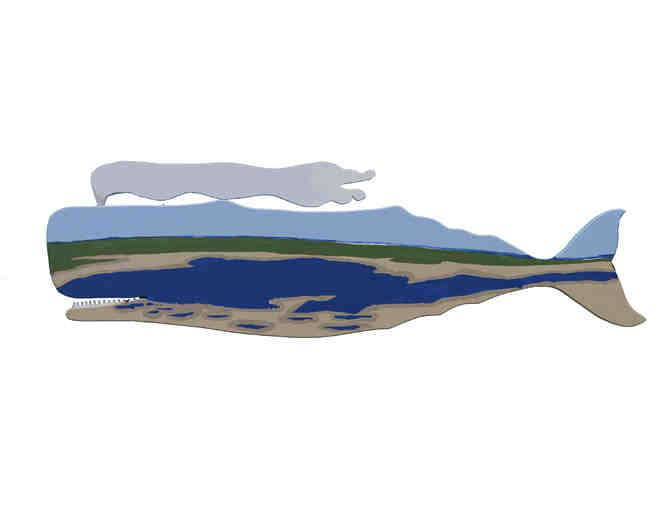Art
Item Description
Artist: Julie Dykens
Julie Eldredge-Dykens is a local artist and the owner of the Local Color Gallery in West Chatham. A lifelong resident, she grew up on Stillwater Pond enjoying all that nature inspired as future artistic subject matter.
Julie attended Smith College majoring in studio art. During the summer she crewed on commercial fishing vessels departing from Chatham harbor. Her art is influenced by her experiences on the Atlantic fishing for sea scallops, giant Atlantic Bluefin tuna, cod and other species. Julie also worked inshore waters clamming, sea clamming and scratching quohogs. She worked with her future husband running a seafood wholesaling business selling scallops, sea clams and mussels throughout New England.
Julie works out of the Creative Art Center on Crowell Road where her art has centered on clay ‘slab work’. She fashions ceramic fish of all species and tiles depicting beach scenes, favorite foods, shared family moments, birds, and the natural world in all its beauty.
Julie has participated for several years in the Chatham Merchants Association’s Whales and Sharks in the Park events. Her paintings have depicted some of the natural and historic surroundings that make the Town of Chatham so incredibly unique.
Julie lives in West Chatham and is married to Jeffrey Dykens. They have three children and one wonderful grand child all of whom reside in NYC!
Item Special Note
WHITEWASH VILLAGE ON MONOMOY ISLAND CHATHAM
There was once a fishing village on Monomoy Island known as “Whitewash Village”. Based on historical records and my imagination, this painting attempts to depict this village.
With a harbor near The Powder Hole deep enough to accommodate offshore fishing vessels, Whitewash Village was home to about 200 residents. The village included a tavern known as “The Monomoit” as well as a school. The inhabitants harvested and marketed the plentiful natural resources such as cod, lobster and many kinds of shellfish and a bustling commercial fishing village thrived.
Monomoy was once connected to the mainland and accessible by horse and buggy as well as by boat. Whitewash Village existed from the 1700’s until a powerful storm rendered its harbor inaccessible in 1860.
This whale is 58" x 15" and is painted on both sides.
Chatham Chamber of Commerce & Merchants Association stores data...
Your support matters, so Chatham Chamber of Commerce & Merchants Association would like to use your information to keep in touch about things that may matter to you. If you choose to hear from Chatham Chamber of Commerce & Merchants Association, we may contact you in the future about our ongoing efforts.
Your privacy is important to us, so Chatham Chamber of Commerce & Merchants Association will keep your personal data secure and Chatham Chamber of Commerce & Merchants Association will not use it for marketing communications which you have not agreed to receive. At any time, you may withdraw consent by emailing Privacy@frontstream.com or by contacting our Privacy Officer. Please see our Privacy Policy found here PrivacyPolicy.


